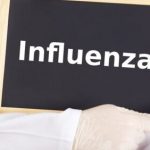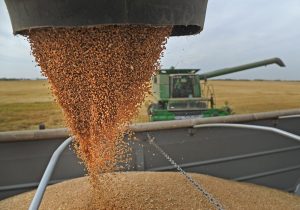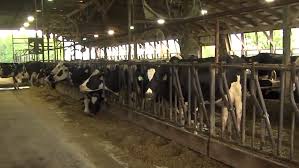
The U.S. Centers for Disease Control and Prevention (CDC) sent an alert on April 5 to state health departments and providers after a human bird flu infection in a Texas dairy farm worker was confirmed earlier this month.
In a “health alert network” advisory, the federal agency said that health care providers should be aware of its “updated recommendations” on “instructions for infection prevention and control measures, using personal protective equipment (PPE), testing, antiviral treatment, patient investigations, monitoring of exposed persons” such as individuals who have been “exposed to sick or dead wild and domesticated animals and livestock with suspected or confirmed infection” with H5N1 avian influenza.
For doctors and health care workers, they “should consider the possibility of” bird flu in people “showing signs or symptoms of acute respiratory illness or conjunctivitis and who have relevant exposure history” with potentially sickened livestock or birds, the agency said. Conjunctivitis is a key symptom, the agency added.
The advisory then says that people with a confirmed case or with compatible bird flu symptoms should be isolated, given antiviral treatment, and should isolate from members of their household, according to the CDC alert. Local health workers should also notify state and local health officials and collect samples from the infected individual to do a test for H5N1 influenza, it added.
State and local health agencies should then be called on to investigate the cases, the CDC said.
The fresh advisory came after an individual in Texas became exposed to the virus at a dairy farm, ostensibly due to infected dairy cattle, officials confirmed in early April. The person’s symptom primarily was conjunctivitis, wasn’t hospitalized, and is recovering, they said.
It follows a 2022 case in Colorado, and comes as the virus appears to be spreading to new mammals, including dairy cattle for the first time, the U.S. Department of Agriculture and other officials have said. Since 1997, about 900 human cases of bird flu have been reported in around 23 countries.
Earlier in the week, the CDC said the infection does not change the risk assessment for the U.S. general public from H5N1 bird flu, which it considers to be low.
Bird flu “viruses are circulating among wild birds in the United States, with associated outbreaks among poultry and backyard flocks and sporadic infections in mammals,” said the agency on April 5, again adding that its risk assessment of the virus to the public remains low.
“However, people with job-related or recreational exposures to infected birds, cattle, or other animals are at higher risk of infection and should take appropriate precautions,” it said.
Poultry farmers and workers, people who own backyard flocks, livestock farmers and workers, and veterinarians should wear “recommended PPE” such as an N95 mask, eye protection, and gloves. They are also advised by the CDC to perform hand washing after contact with the birds or livestock.
“People should avoid being near sick or dead animals or surfaces contaminated with the animal’s feces, litter, raw milk, or other byproducts when not wearing respiratory or eye protection,” it said.
Officials have maintained, however, there is no evidence of human-to-human transmission of bird flu, or namely H5N1, inside the United States. Currently, there are 11 dairy herds with confirmed positive cases in cattle, said the U.S. Department of Agriculture (USDA) earlier this week, including seven farms in Texas, two in Kansas, one in New Mexico, and one in Michigan.
CDC Officials Respond
On Wednesday, CDC Director Mandy Cohen told ABC News that officials have been prepared for an avian influenza outbreak for the past 20 years. Other federal officials have said in the past week that they potentially have a bird flu vaccine ready if need be.
Federal health officials, Dr. Cohen added, have been “working on avian flu and preparing for it [in humans] for 20 years” and that “we’ve invested in our ability to test for it, to prevent it, to treat it.”
“These are the things that reassure me: 20 years of preparation, no genetic changes to this virus, no human-to-human spread and nothing in the virus in terms of adaptations that would make us think it is more adaptive to human spread,” the CDC director said. The federal government is “taking this situation very seriously and closely monitoring it.”
Dr. Demetre Daskalakis, the head of the CDC’s National Center for Immunization and Respiratory Diseases, told Reuters earlier this week the risk mainly applies to “individuals who are interacting with livestock or other animals that have avian influenza.”
“It’s important to connect to public health and medical care to make sure that you’re being observed. But again, for most people, if you’re not exposed to these animals, the risk is very, very low,” he said.
A total of nearly 900 human cases of avian influenza have been identified since 2003, says the United Nations’ World Health Organization. About half of them have died, the agency says, although it cautioned that nearly all the human cases were linked to contact with infected birds or other bird flu-contaminated areas.
In 2022, a prison inmate in a work program caught it while he killed infected birds at a farm in Colorado. He recovered from the infection, and his only symptom was fatigue, officials say.
You can now read the most important #news on #eDairyNews #Whatsapp channels!!!
🇺🇸 eDairy News INGLÊS: https://whatsapp.com/channel/0029VaKsjzGDTkJyIN6hcP1K























